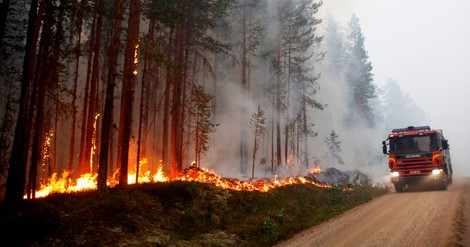Your podcast discovery platform
Curious minds select the most fascinating podcasts from around the world. Discover hand-piqd audio recommendations on your favorite topics.

piqer for: Climate and Environment Global finds
Andrea is a writer and researcher based out of Chicago. Andrea has a Bachelor's degree in environmental science from The Ohio State University and a Master's in Environmental Planning and Management at National Taiwan University, where she specialized in climate adaptation and urbanization. She writes for TaiwaneseAmerican.org, and sends out a biweekly newsletter which includes articles on politics, environment, identity, and intersections of race, class, and gender (http://eepurl.com/bPv-F5).
How Did The End Of The World Become Old News?
Last July, I wrote a much-talked-over magazine cover story considering the worst-case scenarios for climate change — much talked over, in part, because it was so terrifying, which made some of the scenarios a bit hard to believe... But, this July, we already seem much farther along on those paths than even the most alarmist climate observers — e.g., me — would have predicted a year ago.
Unprecedented heat waves, wildfires and the like are all happening at much greater intensity and frequency this year than last. Fires in Greece and California, floods and heatwaves in Japan in successive weeks, and record temperature highs "from Denver to Burlington to Ottawa; from Glasgow to Shannon to Belfast; from Tbilisi, in Georgia, and Yerevan, in Armenia, to whole swaths of southern Russia," with deaths accompanying many of these examples. And yet, the reporting on climate has been oddly quiet, at least the stories that explicitly tie these events to global climate change.
The transformation of the planet and the degradation may be the biggest and most important story of our time, indeed of all time, but on television, at least, it has nevertheless proven, so far, a “palpable ratings killer.”
It seems that the end of the world, in all its apocalyptic flood and fire, is now old news, and thus does not make the news. The worse news being, that things will almost definitely get worse.
But the author here questions why a significant issue changing lives everywhere (climate change) would be less exciting than reporting on weather anomalies (like a heatwave). And the conclusion drawn is that there are two things at play: 1) rightwing blowback, and 2) public apathy. Perhaps there are not a lot of new ways to say that things are bad, and going to get worse. But this issue will not go away, and we cannot turn away from it. Thus, media should take on the challenge of reporting one of the most important issues of our time.
